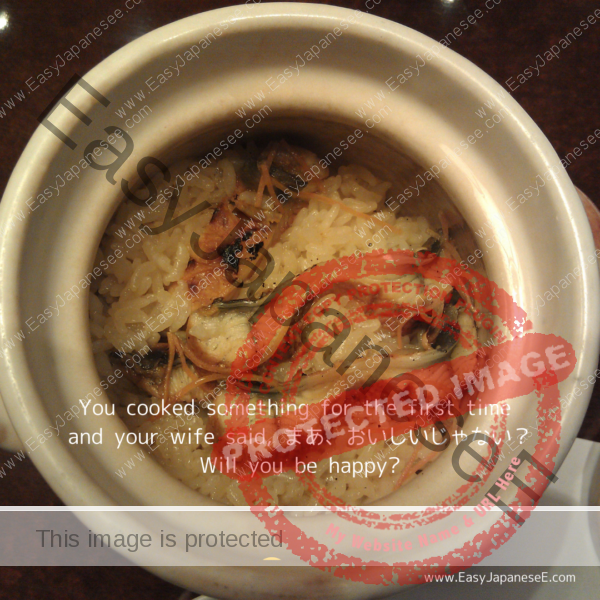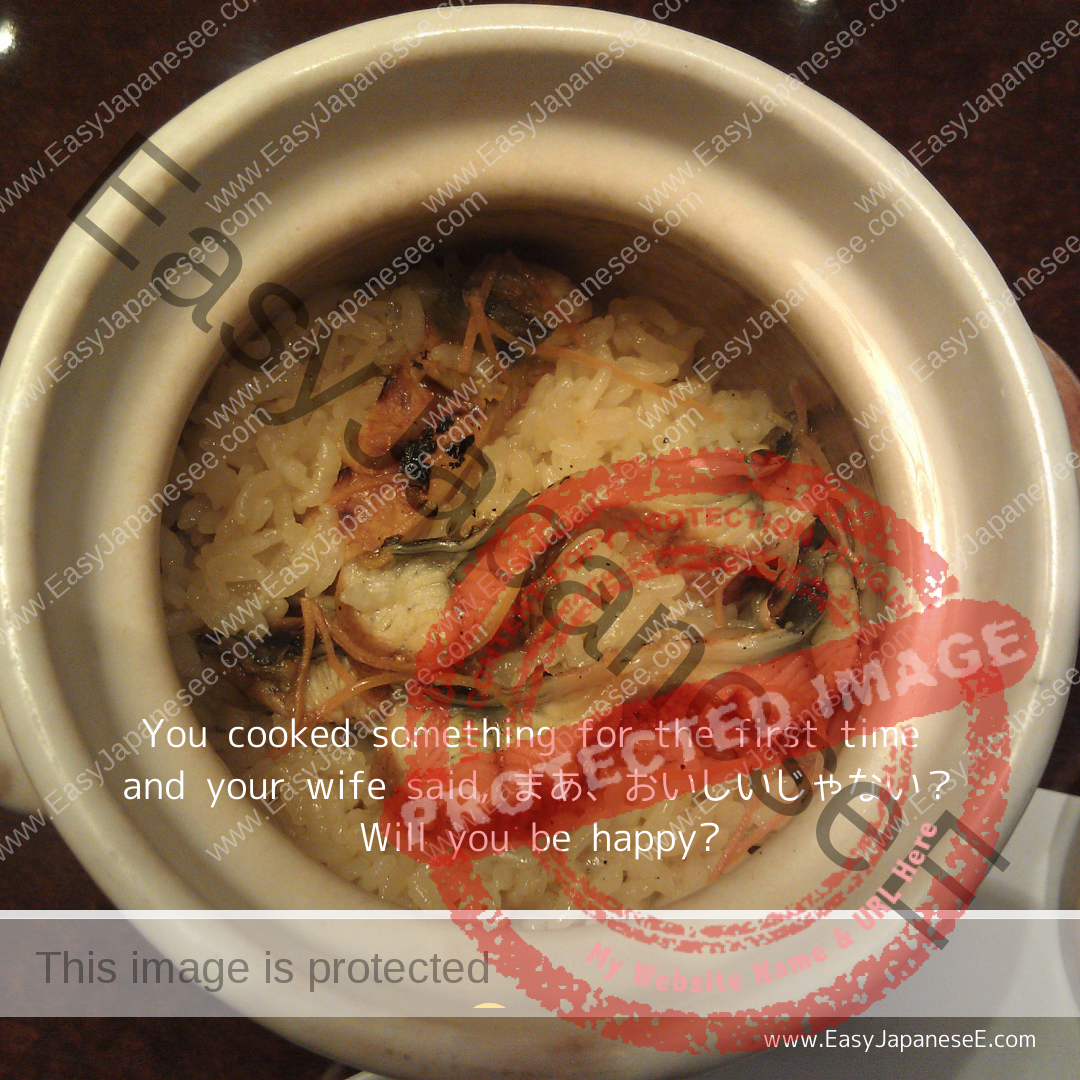
Today’s Question
You cooked something for the first time and your wife said, まあ、おいしいじゃない?
Will you be happy?
Today’s Grammar Point: ~じゃない? (colloquial)
Connection
verb: [plain form (non-past/past, affirmative/negative)] (+ ん) + じゃない?
いadjective: [plain form (non-past/past, affirmative/negative)] (+ ん) + じゃない?
なadjective: [stem] (+ なん) + じゃない?/ [stem じゃない/だった/じゃなかった] (+ ん) + じゃない?
noun: [noun] (+ なん) + じゃない?/ [noun じゃない/だった/じゃなかった] (+ ん) + じゃない?
Meaning
- expressing your guess (“perhaps…?”)
- asking for confirmation
- expressing surprise or criticism
Note
This sentence pattern is different from negative statements like ”わたしは学生じゃない。 (I’m not a student.)” and that is the reason why it is followed by a question mark (“?”). This ~じゃない? is mainly used in casual conversations and have an upward intonation. As you cannot show the intonation in writing, many people will use a question mark when writing this down but please note a question mark is not part of official Japanese punctuation.
Examples
- guessing
明日は雨なんじゃない?
I bet it will rain tomorrow.たろうさんなら着物で来るんじゃない?
If you are talking about Taro, he may come in Kimono.ちょっと落ち込んでいるようだけど、先生に怒られたんじゃない?
He looks a bit down. Perhaps he got told off by his teacher?あの人ちょっとおかしいんじゃない?
Perhaps he’s a bit strange?試験が難しかったんじゃない?
Perhaps, the exam was hard?
- asking for confirmation
あそこにいるのは先生じゃない?
Isn’t the person over there our teacher?このお店って有名じゃない?
Isn’t this shop famous?花子さんはとてもきれいじゃない?
Hanako is very pretty, isn’t she?明日は朝早いんじゃないの?
You have an early start tomorrow morning, don’t you?
- express surprise or criticism
すごく上手じゃない?
Wow, you are so good!急に止まったら、危ないじゃない?気をつけてよ。
It’s dangerous if you stop suddenly! Be careful!
Answer to Today’s Question
おいしいじゃない? here is an expression of surprise, so the whole thing is like: “Wow, it’s surprisingly delicious!” You could be happy for her saying it’s delicious, but you could be upset for the “surprisingly” bit. You feel happy or not is up to you!
The important thing here is the negative of おいしい is おいしくない. Using じゃない with an いadjective is not making it negative but adding a different meaning (here it is a “surprise”) to it.
If you liked this post, please share it with your friends via your social media accounts. Your support will be appreciated!

